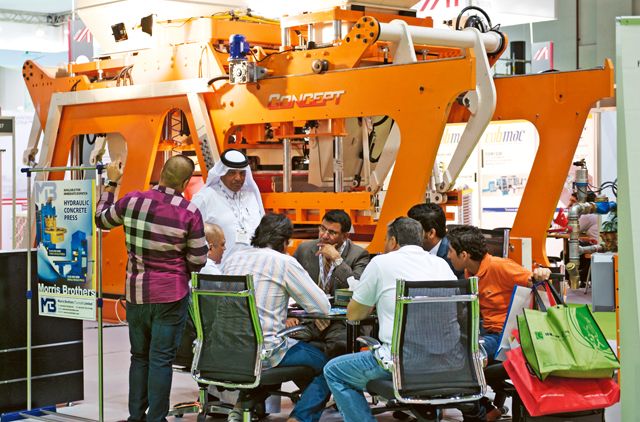Precast concrete is replacing traditional materials as the preferred structural material for major construction projects in the Middle East, according to a report by Zawya. The report, commissioned by Middle East Concrete (MEC) 2012, indicates that the UAE is at the forefront of this trend, with the precast sector valued at Dh6 billion, followed by Qatar and Saudi Arabia.
According to Zawya, there are 29 precast factories in the UAE employing more than 25,000 technicians and skilled workers. These numbers are set to grow.
Vast benefits
The structures are produced by casting concrete and moulding them in a controlled environment. They are then transported to the construction site and lifted into place. Insiders say the components are time- and cost-efficient and provide a high-quality finish to the overall structure. Other benefits include its versatility and ability to better withstand the extreme temperatures in the region.
Philip Tabone, Chairman of Philip A. Tabone International, says, "The region's construction sector is now on a high growth route with a great number of public and private sector projects at various stages of development. To meet these deadlines, contractors need products that are versatile, economical, environment-friendly and durable. This makes precast a popular choice and the Middle East one of the biggest consumers of precast structures today."
Regional recovery
One of the items on the agenda at MEC is the effective use of the state-of-the-art precast plants in the region. The event will host a panel session with precast producers and machinery suppliers to discuss and find effective solutions to producing and utilising precast structures efficiently.
"As the region's construction sector makes a steady rebound, the main concerns raised by industry heads centre around wanting cost-effective, durable and sustainable solutions," says Nathan Waugh, Event Manager, Middle East Concrete.
"Precast answers this need and is well suited for the Gulf market. It also offers huge business opportunities to the construction sector and the educational elements of this year's event help to promote these, through increasing understanding of sustainable concrete solutions and encouraging the share of knowledge and best practice."
The Middle East, and specifically GCC countries, is expected to continue to make a significant contribution to the global construction industry, with approximately 5,045 on-going construction projects worth an estimated $1.82 billion (Dh6.68 billion), according to Ventures Middle East.
This explains the rising demand for concrete as well. In Saudi Arabia, currently the region's biggest construction market, demand for concrete is expected to grow annually at around 23 per cent.
Precast industry takes shape
Demand is rising in the Middle East, with the UAE leading with Dh6b market













